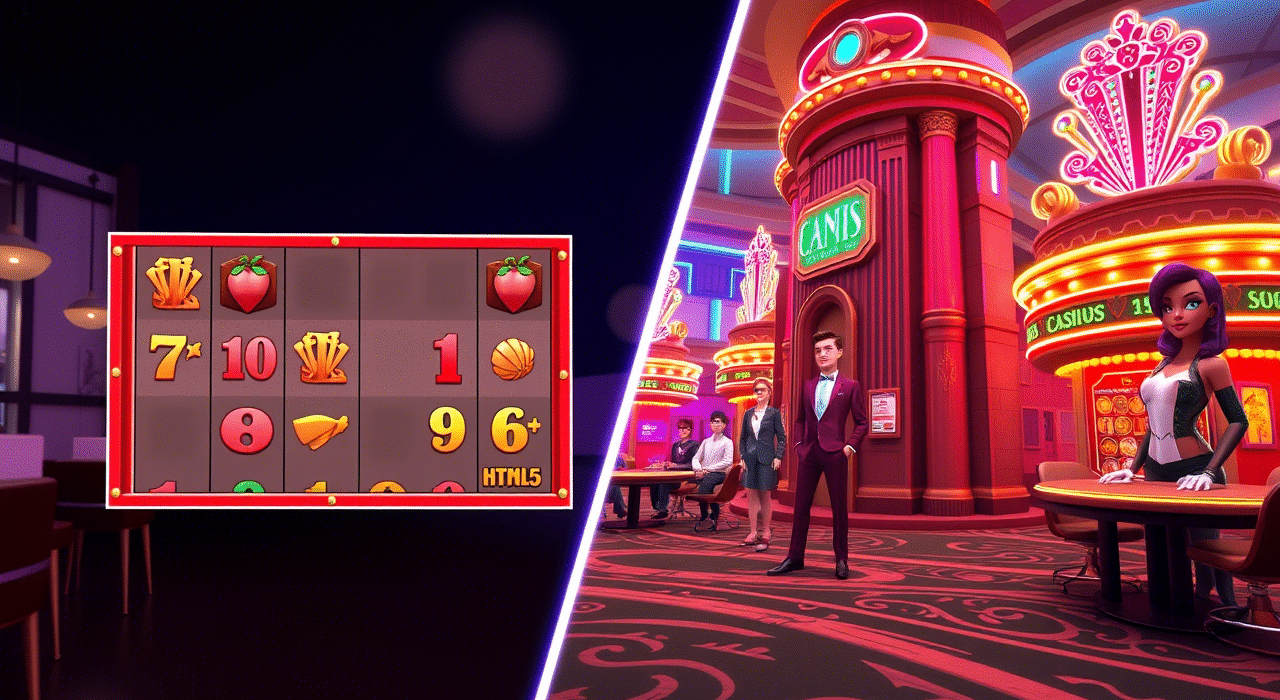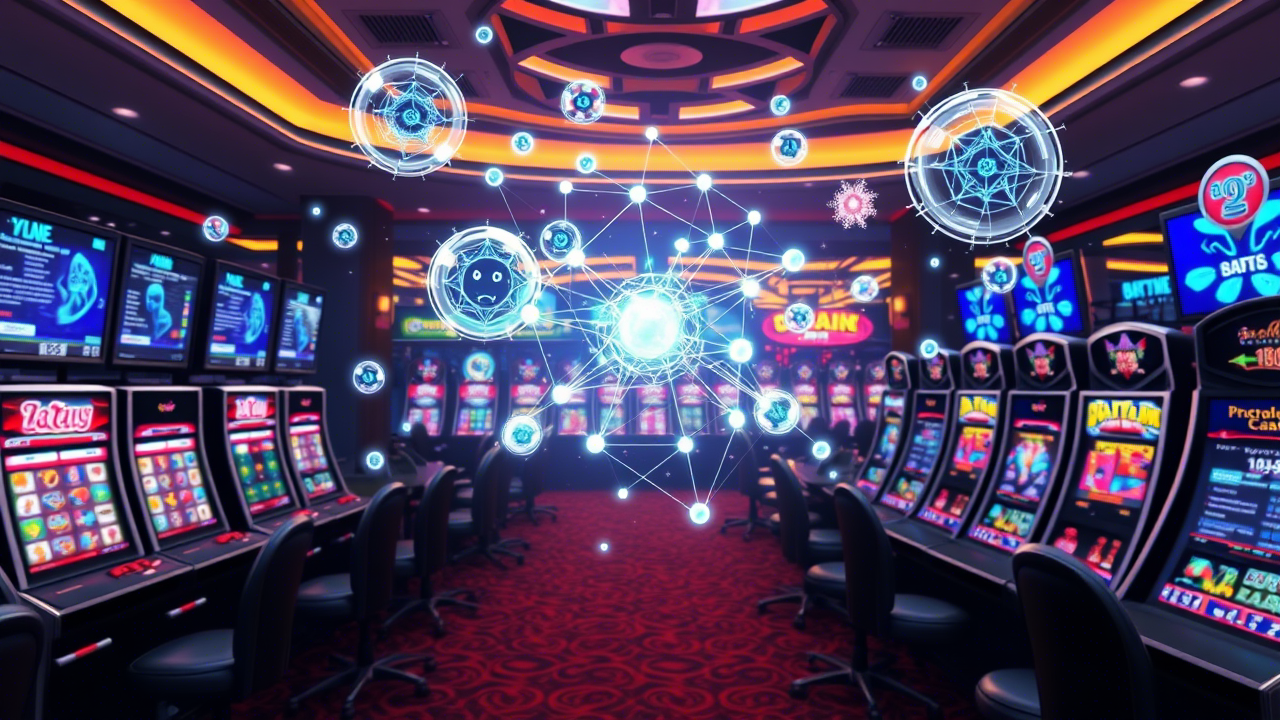🎮 The Engine Behind the Action: HTML5 or Unity?
Behind every spin, deal, or win in an online casino lies a game engine. But in 2025, the big question isn’t just about what’s fun or fair—it’s about what’s powering it. And two contenders dominate the conversation: HTML5 and Unity.
As the gambling world gets more immersive, interactive, and cross-platform, studios face a high-stakes tech choice. Will they go with HTML5’s slick browser compatibility and speed? Or double down on Unity’s cinematic 3D performance and versatility?
This article explores how game developers are making that call in 2025, what’s at stake, and what it means for the future of iGaming, social casinos, and real-money platforms.
🧩 A Quick Primer: What Are We Comparing?
🔹 HTML5
- A markup language used to create responsive web-based games
- Native to all modern browsers, no plug-ins required
- Known for speed, lightweight performance, and instant deployment
🔹 Unity
- A cross-platform game engine built for 2D/3D content
- Used in AAA games, indie hits, and increasingly, casino titles
- Offers advanced physics, 3D rendering, and animation tools
Both engines can deliver excellent gameplay—but their strengths cater to very different priorities.
🔄 A Shift in the Studio Mindset
✅ In 2020–2023:
- HTML5 became the standard for replacing Flash
- Unity was seen as too bulky or overkill for most casino games
💥 In 2024–2025:
- Mobile-first UX has matured
- Streamed games and real-time multiplayer content exploded
- User expectations changed—they now want interactivity, not just autoplay
So studios are starting to rethink the limitations of HTML5 and look again at Unity for:
- VR/AR potential
- 3D avatars and lobby systems
- Live dealer + 3D game hybrids
🔍 Studio Decisions: Who’s Using What?
🛠 HTML5 Still Dominates Where:
- Simplicity matters (slots, scratchcards, table games)
- Speed and browser-based deployment is crucial
- Regulatory environments demand lightweight, low-risk builds
Studios favoring HTML5 in 2025:
- Pragmatic Play: Streamlined mobile games with global reach
- Play’n GO: Still developing stunning visual games entirely in HTML5
- Hacksaw Gaming: Known for clean, fast-loading instant win games
“For 95% of our roadmap, HTML5 is king. Why complicate what’s working?”
— Senior Developer, Malta-based Slot Studio
🎮 Unity Rising in Popularity Where:
- 3D slots, game shows, or social casino lobbies are involved
- Studios want to build hybrid experiences (e.g., slots inside virtual worlds)
- Metaverse concepts, avatar-based gambling, or NFT platforms are explored
Studios adopting Unity in 2025:
- Evolution Gaming: Experimenting with 3D game show stages and enhanced interactions
- Yggdrasil: Pushing visual boundaries with immersive reel mechanics
- Spribe: Creating social crash games that blur lines between gaming and gambling
“Unity lets us build not just games—but experiences. You can’t get that from HTML5.”
— Lead Game Designer, Crypto Casino Operator
💡 HTML5: Pros and Pitfalls
✅ Strengths:
- Instant playability in browsers
- Works seamlessly across devices
- Requires no downloads
- Perfect for low-bandwidth regions
- Easier to update remotely
❌ Limitations:
- 3D capabilities are rudimentary
- Animation and physics are more limited
- Custom UI/UX requires heavy coding
- Doesn’t scale well into multi-layered environments
In short: HTML5 is efficient but linear. Perfect for classic formats, but struggles when innovation or depth is needed.
💡 Unity: Pros and Pitfalls
✅ Strengths:
- Robust 3D graphics and animation
- Perfect for VR, AR, and real-time multiplayer
- Ideal for rich social interactions and avatars
- Unified IDE allows rapid prototyping and cross-platform deployment
❌ Limitations:
- Larger file sizes (longer load times)
- Requires dedicated QA for performance bugs
- Heavier regulatory scrutiny for downloadable or plugin-based builds
- Can alienate users in low-data markets
In short: Unity offers depth and realism, but it’s a heavier lift. Great for innovation, not for speed.
📱 Mobile Optimization in 2025: Who’s Winning?
Mobile-first has been the mantra for years—but in 2025, it’s mobile-immersive that’s winning.
- HTML5 games load faster and consume less data, making them perfect for casual users and regulated markets like India, Africa, and Southeast Asia.
- Unity games dominate in high-end mobile devices, particularly in North America, Western Europe, and Korea—where 5G and AR features are widely adopted.
We’re now seeing regional bifurcation in development strategy:
- Emerging markets = HTML5 first
- Mature, tech-rich markets = Unity-led innovation
🔐 Regulatory Impact: A Deciding Factor
The choice of engine also affects compliance strategy.
In strict jurisdictions (UK, Germany, Netherlands):
- HTML5 is easier to sandbox
- Faster for getting games certified
- Better data handling transparency
In frontier markets or crypto platforms:
- Unity allows integration of experimental features
- Easier to create tokenized assets, in-game items, or NFT logic
In short: HTML5 wins the regulatory battle, but Unity is powering the underground experiments.
📊 Cost Considerations in 2025
| Factor | HTML5 | Unity |
| Dev Speed | Fast | Moderate |
| Dev Cost | Low to Medium | Medium to High |
| Maintenance | Easy | Complex |
| Innovation Flexibility | Low | High |
| VR/3D Capability | Minimal | Best-in-class |
| Browser Compatibility | Excellent | Limited / Often App-based |
Many studios adopt a hybrid strategy: use HTML5 for bread-and-butter games, and Unity for “hero products” or brand activations.
🧠 The Player’s Perspective
Surprisingly, many players don’t know or care what engine a game uses—as long as:
- It loads quickly
- Plays smoothly
- Looks exciting
- Doesn’t crash
However, Gen Z gamblers, who’ve grown up with Fortnite and Roblox, are increasingly drawn to Unity-style experiences.
They expect:
- Customization
- Immersion
- Multiplayer social elements
That’s shifting demand—and development budgets—toward Unity-powered concepts, even in traditional gambling verticals.
🔮 What the Future Holds
As of mid-2025, studios are divided but strategic. Most use both engines—HTML5 for scale, Unity for edge.
But signs point to an eventual convergence:
- WebAssembly (WASM) is enabling more 3D in browsers
- Unity’s WebGL improvements may soon rival native HTML5 performance
- Streaming technology is removing load-time barriers altogether
By 2027, it’s likely that HTML5 vs. Unity won’t be a question—because games will be built engine-agnostic, streamed directly to the player, no matter what device they use.
📌 Final Thought
The tech powering your favorite slot or crash game isn’t just an afterthought—it’s a strategic choice that affects performance, compliance, experience, and reach.
So whether it’s an HTML5 classic or a Unity-powered 3D spectacle, know this:
The battle of the engines is really a battle of vision.
Speed or immersion? Scale or spectacle? Pragmatism or possibility?
For now, studios are walking a tightrope between the two. But in the end, it won’t be the engine that wins—it’ll be the player experience.











